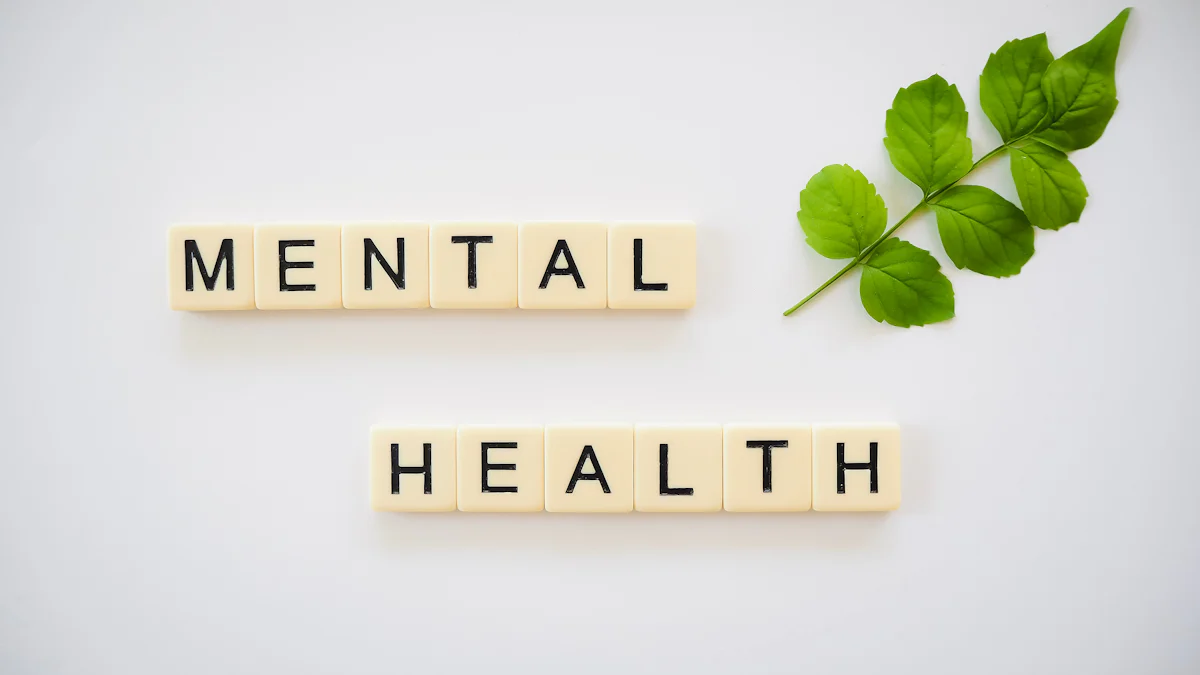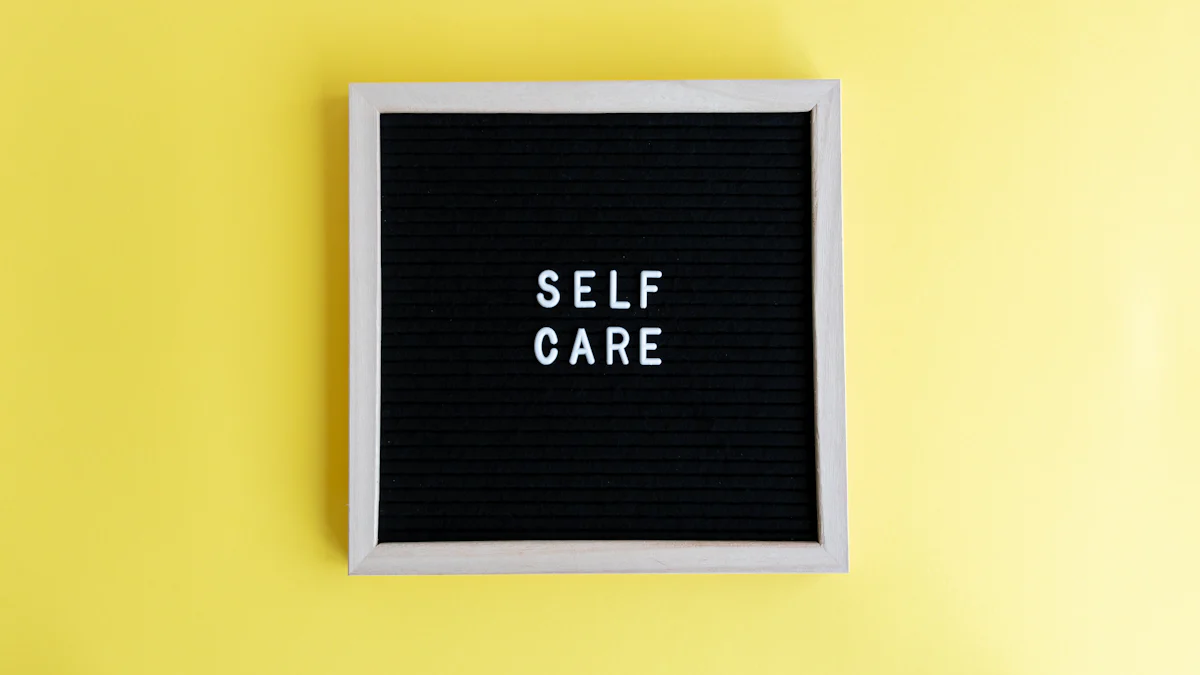Introduction
Living a stress-free life is essential for your overall well-being. Stress can have a significant impact on your physical and mental health, relationships, and daily productivity. Understanding the importance of a stress-free life and the detrimental effects of stress is the first step towards achieving a more fulfilling and healthier lifestyle.
The Importance of a Stress-Free Life
A stress-free life allows you to focus on what truly matters, enabling you to navigate life’s challenges with resilience and clarity. By eliminating unnecessary stress, you can enhance your emotional stability, improve decision-making abilities, and foster stronger relationships. Reducing stress contributes to better physical health, including lower blood pressure, improved immune function, and reduced risk of chronic diseases.
Understanding the impact of stress on your life
The impact of stress extends beyond its immediate emotional toll. Prolonged exposure to stress can lead to anxiety disorders, depression, insomnia, and other serious health issues. It can also impair cognitive function and hinder your ability to concentrate and perform daily tasks effectively. Recognizing these consequences underscores the urgency of adopting proven strategies to eliminate stress from your life.
In this blog post, we will explore practical techniques that empower you to identify and manage your stress triggers effectively. By prioritizing self-care, creating a positive environment, and embracing mindfulness practices, you can embark on a transformative journey towards living a fulfilling and stress-free life.
Understanding Your Stress Triggers
Identifying the factors that make you anxious is a crucial step in effectively managing stress and anxiety. By recognizing the signs of stress and anxiety, you can proactively address these triggers and develop coping mechanisms to navigate challenging situations with resilience.
Identifying What Makes You Anxious
Anxiety manifests in various ways, and it’s essential to be attuned to the subtle signs that indicate heightened stress levels. Physical symptoms such as rapid heartbeat, muscle tension, and fatigue can often accompany feelings of unease and apprehension. Cognitive signs like excessive worrying, racing thoughts, and difficulty concentrating are common indicators of underlying anxiety.
To identify what makes you anxious, note specific situations or circumstances that consistently evoke feelings of unease or tension. Reflect on your daily experiences and interactions to pinpoint recurring patterns that trigger stress responses. By acknowledging these triggers, you can begin developing personalized strategies to mitigate their impact on your overall well-being.
Recognizing signs of stress and anxiety
Recognizing the signs of stress and anxiety is pivotal in addressing these challenges effectively. Common physical manifestations include headaches, digestive issues, and changes in appetite or sleep patterns. Emotionally, heightened irritability, restlessness, and a sense of impending doom may signal underlying anxiety.
Behavioral cues, such as avoidance behaviors, social withdrawal, or an inability to relax, show elevated stress levels. By paying attention to these signals within yourself, you can take proactive measures to manage your stress triggers more effectively.
The Role of Time in Stress Management
The mismanagement of time can significantly contribute to heightened stress levels. Feeling overwhelmed by an unmanageable workload or constantly racing against deadlines can induce considerable psychological strain. Moreover, neglecting personal time for relaxation and rejuvenation amidst a demanding schedule can exacerbate feelings of being perpetually under pressure.
How mismanagement of time leads to stress:
- Overcommitting: Taking on more responsibilities than manageable leads to increased pressure.
- Procrastination: Delaying tasks creates a backlog that amplifies feelings of urgency.
- Lack of Boundaries: Failing to establish clear boundaries between work and personal life blurs lines and intensifies mental strain.
By understanding the detrimental effects of poor time management on your mental well-being, you can begin implementing practical strategies to prioritize tasks effectively while carving out dedicated periods for self-care.
In the next section, we will delve into prioritizing self-care and healthy habits as fundamental components in combating stress triggers effectively.
Prioritizing Self-Care and Healthy Habits

In the midst of life’s demands, prioritizing self-care and healthy habits is paramount to effectively managing stress and nurturing your overall well-being. By incorporating mindfulness practices, deep breathing exercises, and physical activity into your daily routine, you can cultivate resilience and ease the impact of stress in your life.
Practice Mindfulness and Deep Breathing
Mindfulness is a powerful tool for reducing stress and enhancing emotional well-being. It involves being fully present at the moment, acknowledging your thoughts and feelings without judgment. Engaging in mindfulness meditation for just a few minutes each day can significantly reduce stress levels. To practice mindfulness:
- Find a quiet space where you can sit or lie down comfortably.
- Close your eyes and focus on your breath, taking slow, deep breaths in through your nose and out through your mouth.
- Pay attention to the sensations of breathing, letting go of any intrusive thoughts that may arise.
Deep breathing exercises are another effective way to relieve stress. By slowing down your breath and focusing on deep inhalations and exhalations, you can activate the body’s relaxation response, calming both the mind and body.

The Power of Physical Activity
Engaging in regular physical activity helps to combat stress triggers and promote mental well-being. Exercise releases endorphins, neurotransmitters that act as natural mood lifters, reducing feelings of anxiety and tension. Whether it’s brisk walking, jogging, yoga, or spending time with pets outdoors, physical activity offers numerous benefits for stress relief.
Yoga combines physical postures with breath control and meditation to promote relaxation and reduce muscular tension. Its emphasis on mindfulness makes it an effective practice for alleviating mental stress while improving flexibility and strength.
Spending time with pets also has a calming effect on the mind. Interacting with animals in studies has shown the ability to lower cortisol levels (the hormone associated with stress) while increasing oxytocin production (the “feel-good” hormone), which contributes to an overall sense of well-being.
Incorporating these simple, yet impactful practices into your daily routine can significantly contribute to relieving stress while fostering a healthier mindset.
Creating a Positive Environment

In pursuiting a stress-free life, creating a positive environment is pivotal. Surrounding yourself with happy people and managing your schedule while reducing screen time can significantly impact your stress levels and overall well-being.
Surround Yourself with Happy People
Relationships significantly impact stress levels, and their importance cannot be emphasized enough. Happy people exude positivity and optimism, which can be contagious. By fostering meaningful connections with individuals who radiate joy and gratitude, you can cultivate a supportive network that uplifts your spirits during challenging times. Engaging in conversations that inspire laughter, sharing moments of triumph, and receiving encouraging comments from those in your social circle can provide solace and relief from stress.
Spending time with individuals who are passionate about their career or hobbies can instill a sense of purpose and motivation within you. Their enthusiasm may ignite new interests or reignite dormant aspirations, offering a refreshing perspective that eases mental strain.
To surround yourself with happy people, consider joining clubs or groups aligned with your interests, attending community events, or taking part in activities that promote camaraderie. Actively search for individuals who radiate positivity and are dedicated to fostering fulfilling relationships.
The impact of relationships on stress levels
Positive relationships play a crucial role in mitigating stress levels. Interacting with individuals who radiate happiness fosters an environment conducive to emotional well-being. Their unwavering support, empathetic understanding, and ability to infuse optimism into daily interactions contribute to a more balanced and resilient mindset.
Managing Your Schedule and Reducing Screen Time
Practical tips for leading a balanced life encompass effective time management strategies and minimizing excessive screen time. By optimizing your daily routine and curbing digital distractions, you can create an environment conducive to relaxation and mental rejuvenation.
Practical tips for a balanced life
- Prioritize Essential Commitments: Identify the core responsibilities that align with your goals and values, while decluttering non-essential commitments from your schedule. This approach prevents overcommitment, allowing you to allocate sufficient time for self-care activities without feeling overwhelmed by excessive obligations.
- Establish Boundaries: Define clear boundaries between work-related tasks and personal endeavors to maintain a healthy work-life balance. Designate specific periods for focused productivity, while safeguarding leisure time for restorative activities that alleviate stress.
- Create Tech-Free Zones: Designate specific areas in your living space as tech-free zones where electronic devices are prohibited. This practice promotes mindful engagement in alternative activities such as reading, engaging in hobbies, or savoring moments of quiet contemplation without digital interruptions.
- Engage in Physical Activities: Incorporate regular physical activities into your daily routine to counteract prolonged screen exposure. Whether it involves outdoor excursions, fitness classes, or recreational sports, physical exercise offers respite from sedentary behaviors associated with excessive screen time while promoting mental clarity.
By implementing these practical strategies into your lifestyle, you can foster an environment conducive to emotional well-being while effectively managing stress triggers.
Embracing the Present and Letting Go of the Past
Living a stress-free life involves embracing the present moment and releasing the burdens of the past. By focusing on the here and now, you can cultivate a sense of peace and contentment while relinquishing grudges and anger that may weigh heavily on your mind.
Stop Living in the Past and Worrying About the Future
To lead a stress-free life, it’s essential to stop living in the past or worrying excessively about the future. Instead, focus on techniques that enable you to center your attention on the present moment, fostering a mindset of gratitude and mindfulness.
Techniques to focus on the present moment
- Practice Gratitude: Start each day by acknowledging three things you are grateful for. This simple practice shifts your focus to positive aspects of your life, fostering a sense of contentment and reducing anxiety about what lies ahead.
- Mindful Breathing: Engage in mindful breathing exercises throughout the day. Take a few moments to pause, close your eyes, and focus on your breath. Inhale deeply through your nose, hold for a count of three, then exhale slowly through your mouth. This practice anchors you in the present moment, alleviating worries about past events or future uncertainties.
- Sensory Awareness: Heighten your sensory awareness by consciously engaging with your surroundings. Notice the sights, sounds, smells, tastes, and textures around you without judgment or analysis. This sensory immersion grounds you in the present reality, dispelling preoccupations with past regrets or future concerns.
- Engage in Mindful Activities: Whether it’s savoring a cup of tea, taking a leisurely walk outdoors, or immersing yourself in creative pursuits like painting or writing, engage in activities that promote mindfulness. These endeavors redirect your attention to current experiences while fostering an appreciation for life’s simple pleasures.

Letting Go of Grudges and Anger
Releasing grudges and anger is pivotal in paving the path to a lighter, stress-free life. Holding on to resentment towards others or oneself perpetuates emotional turmoil that impedes personal growth and well-being.
The path to a lighter, stress-free life
- Cultivate Forgiveness: Practice forgiveness as an act of self-liberation rather than condoning others’ actions. Recognize that holding onto grudges only perpetuates internal strife; forgiving doesn’t mean forgetting, but freeing yourself from emotional bondage.
- Self-Reflection: Reflect on instances where harboring anger has hindered your peace of mind rather than affecting those who have wronged you. Acknowledge that releasing anger is an act of self-compassion that allows space for healing and growth.
- Seek Closure: If workable, seek closure by addressing unresolved conflicts directly with those involved or through introspective journaling sessions aimed at processing lingering emotions associated with past grievances.
- Embrace Positivity: Surround yourself with positivity by engaging with individuals who radiate optimism and resilience, while distancing yourself from environments that perpetuate negativity or hostility.
By embracing these practices wholeheartedly, you can liberate yourself from emotional burdens rooted in past grievances while nurturing an environment conducive to living a fulfilling life free from unnecessary stressors.
Conclusion
Congratulations on taking the first step towards a stress-free life! By implementing the proven strategies outlined in this blog, you are embarking on a transformative journey towards achieving emotional well-being and resilience. It’s essential to remember that living a stress-free life is an ongoing process that requires dedication and self-compassion.
As you begin this journey, it’s crucial to approach it with an open mind and a willingness to embrace change. Embracing a stress-free lifestyle involves cultivating healthy habits, prioritizing self-care, and fostering positive relationships. Remember that each slight effort contributes to significant progress in alleviating stress triggers and nurturing a fulfilling life.
To maintain momentum on your path to a stress-free life, consider the following actionable steps:
Take Time for Self-Reflection
Engage in regular moments of self-reflection to assess your progress and identify areas where further improvement is needed. Allocate time for introspection, journaling, or meditation to gain clarity and insight into your emotional well-being.
Practice Gratitude Daily
Start each day by acknowledging three things you are grateful for. This simple practice shifts your focus to positive aspects of your life, fostering a sense of contentment and reducing anxiety about what lies ahead.
Engage in Mindful Activities
Whether it’s savoring a cup of tea, taking a leisurely walk outdoors, or immersing yourself in creative pursuits like painting or writing, engage in activities that promote mindfulness. These endeavors redirect your attention to current experiences while fostering an appreciation for life’s simple pleasures.
Seek Support from Positive Influences
Surround yourself with individuals who radiate optimism and resilience, while distancing yourself from environments that perpetuate negativity or hostility. Their unwavering support and empathetic understanding contribute to a more balanced and resilient mindset.
Your commitment to embracing these practices will undoubtedly lead you towards living a fulfilling life free from unnecessary stressors. Remember that every step counts, and as you continue on this journey, be kind to yourself and celebrate the progress made along the way.
Your path to a stress-free life begins now—embrace it wholeheartedly!







